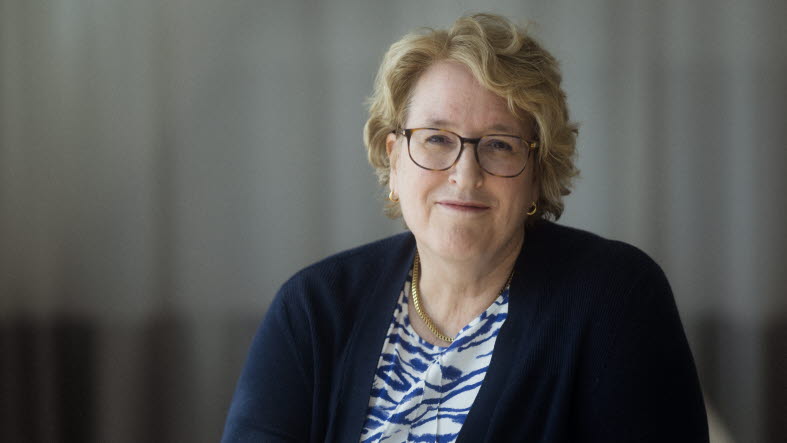Wants to make it easier for people to tackle pension issues

Working with business development is about in-depth understanding of customer needs and constantly meeting a changing set of requirements. “It’s never boring, always something new,” says Ellen Stang Lund, Head of Product & Service Development, at SEB’s Life & Pension company.
Ellen Stang Lund, who has master’s degree in engineering, has worked within IT since 1984, first at IBM and since 1998 at SEB. In the past 22 years she has held a number of managerial positions within the tech organisation but since 2019 she has worked in the bank’s life insurance division where she has had a broader responsibility for both product and service development as well as IT.
150 employees work within the unit but the total agile development organisation consists of approximately 250 people, including some 70 developers in Kuala Lumpur, Malaysia.
The life and pension operations comprise two product families. The first component is various forms of pension savings.
“It’s about being able to secure old age through your own savings, but above all through various types of occupational pension solutions where companies set aside money for their employees’ pensions. We help companies to create a secure retirement for their employees and thus to be an attractive employer.”
The second product family is various types of risk products where individuals can insure themselves against unforeseen events in their lives. These include life insurance, disability insurance and various types of healthcare insurance. These insurances can also be taken out both by individuals and by employers.
What is the target for the future?
“One major change is increased digitalisation. Historically, insurance companies have mostly only communicated with customers by sending out annual statements and similar. Today, customers want to interact with us far more frequently and in a digital format. This includes everything from becoming a customer to managing insurances and savings themselves,” says Ellen Stang Lund.
Companies also want to be able to handle their administration in a simple, digital way. For example, when employees get a new salary, take out parental leave and so on.
“The other major journey of change is about increasing the flexibility in our solutions. Previously, we provided our products as a complete package with everything included. Now both companies and private individuals want to put together their insurance solutions themselves. They want to be able to choose what should be included and what they should pay for.”
What is the most interesting and fun part of working with product development?
“Pensions are a type of product that people don’t think about daily. Something they are happy to postpone and that they associate with a certain anxiety. Our task is to find a way to reach out to customers and get them to tackle pension issues in a way that feels feasible and in the best case enjoyable – at any rate not causing anxiety. This is a very meaningful task.
“It involves taking stock of what is happening in our business environment, keeping an eye on the competition, evaluating what customers really need and ultimately having an IT strategy that allows us to deliver this.”
What skills will you need in the future?
“We will need both employees familiar with the insurance business and employees who are skilled at working with customer-oriented development. And we also need people who can design and produce solutions in a modern IT architecture. We need employees who are good at innovative thinking and I believe we can only achieve this by working across the specialist areas in teams composed of different skills.
“Right now we are on a major journey of change and modernisation where people really get a chance to be involved in shaping the future. Many colleagues here are learning a lot of new things just now and we have exciting challenges both for really experienced people and for those newer in their roles who want to develop together with us."
